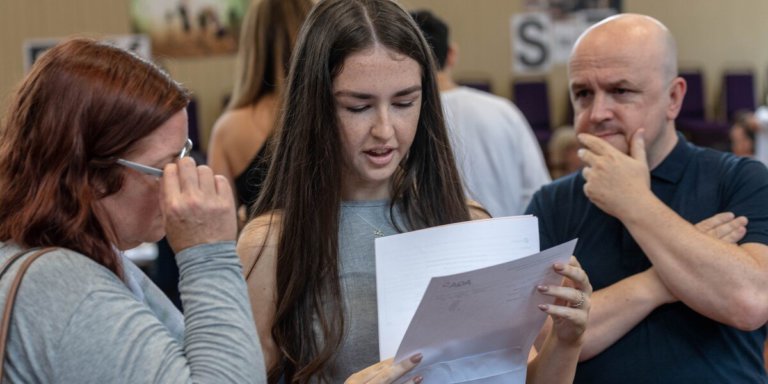
Yesterday was GCSE results day, and thousands of UK students have spent weeks anxiously waiting for their future to unfold.
But the results have shown a stark difference between students who took them in England’s wealthiest communities and those from poorer backgrounds.
Teach First has already published an investigation that takes an in-depth look at the differences in GCSE results, a day ahead of the official results.
GCSE results show a gap between rich and poor students
According to the press release, “Two in five (38%) pupils from the poorest postcodes do not pass Maths GCSE(1), nearly twice as many as those from the richest postcodes (20%);
“Only 11% of the poorest pupils get the top three grades in English Language; 13% in maths; 12% in geography and 15% in French.”
In an educational era that’s more student-centered than ever, this is disheartening, with plenty of debate on fair and inclusive education for all.
Teach First is a charity that aims to help kids from disadvantaged backgrounds and advocates for equality in education.
The organisation argues that “this inequality is holding children back from reaching their full potential, as poor attainment at school significantly reduces the chances of them moving onto top universities, high-quality apprentices [sic] and well-paid jobs.”
Children from the poorest areas are being left behind in every subject within the EBacc.
It doesn’t have to be like this. It is possible to alter the outcome for all children.
Visit our website to find out more about our research: https://t.co/6XX0oP3JoP #GCSEResults2019 pic.twitter.com/p3N5ZNoR4z
— Teach First (@TeachFirst) August 21, 2019
Teach First is also urging for policy makers to invest more in schools in under-served communities, for purposes such as increasing teachers’ salaries so that more qualified and passionate teachers will be motivated to work there.
Russell Hobby, Chief Executive of Teach First, said that a child’s postcode should not determine how well they fare on GCSE results, yet the results are showing just that.
“We know that it is possible to alter the outcome for children in every area. Because time and time again we’ve seen the transformational difference a brilliant education can make, helping all young people to thrive.
“But if we are to achieve this everywhere, the Prime Minister needs to not only hold true to his promise of more investment for schools – but he must target it at those in areas of the greatest need.
“That also means urgently addressing teacher starting salaries, to help encourage more talented people into the profession, so they can use their skills and knowledge where it really matters.”
More funding needed to help students in lower socioeconomic groups
However, the Department for Education (DFE) is insistent that the disparity between disadvantaged and advantaged pupils is narrowing.
According to Yahoo News UK, “The charity’s analysis of Government figures shows that last year, 38% of young people from the poorest areas of England achieved a grade 3 or below – including a U – in their maths GCSE, compared to 20% of those from the richest areas.
“The same proportion of the most disadvantaged youngsters (38%) scored grades 1-3 or a U in GCSE English language, compared to 22% of the most advantaged.”
“Schools are working incredibly hard to ensure that GCSE changes do not disadvantage children in any way”: @ASCL_UK‘s curriculum specialist @steverollett on a report that ‘poorer students less likely to study history at GCSE under government reforms’: https://t.co/kehUowIrTj pic.twitter.com/2g9u9chyc9
— Geoff Barton (@RealGeoffBarton) January 30, 2019
A spokeswoman for the DfE said that the Prime Minister is committed to raising more school funding so school standards can be improved, as well as to retain talented teachers.
It remains to be seen if this holds true. Since the odds are highly stacked against disadvantaged students, GSCE results show that the disparity is still an issue that needs to be urgently addressed.
For those who didn’t fare well in the GCSE results, there is still a chance to resit certain subjects.
According to TES, “Some resits will take place in November 2019 but these are restricted to entries for English language and maths, and you’ll need to resit all written exams.
“For other subjects, your earliest resit opportunity will be in June 2020, and you will also need to resit all written exams. It is always best to check with your school for exact resit options for your specific subject as these will differ between examining bodies.”







